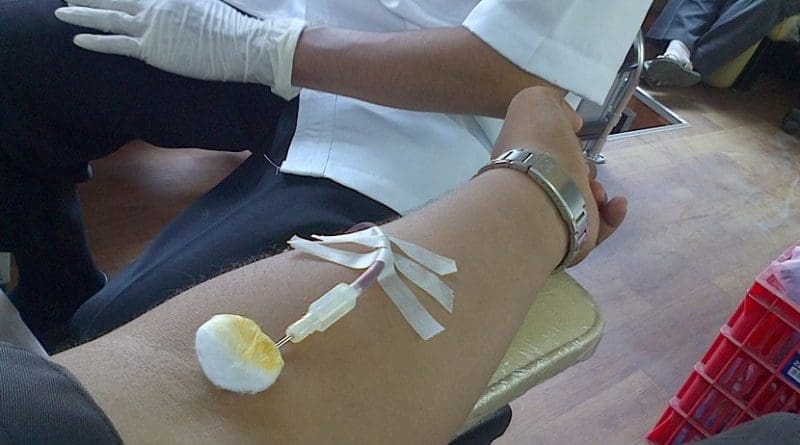Could Blood From COVID-19 Patients Be Used To Predict Disease Progression?
People respond very differently to infection with the novel coronavirus (SARS-CoV-2). While some patients develop no symptoms at all, others will develop severe disease and may even die.
For this reason, there is an urgent need for ‘biomarkers’, quantifiable biological characteristics which could provide a reliable means of predicting disease progression and severity. A research team led by Prof. Dr. Markus Ralser (Director of Charité’s Institute of Biochemistry, holder of an Einstein Professorship and Group Leader at the Francis Crick Institute) used state-of-the-art analytical techniques to rapidly determine the levels of various proteins in the blood plasma.
This approach enabled the researchers to identify various protein biomarkers in the blood plasma of patients with COVID-19 which were linked to the severity of their disease.
The researchers developed a precise, high-throughput mass spectrometry platform capable of analyzing the patients’ proteomes – the compendium of proteins found in biological material – at a rate of 180 samples per day. Using this technology, the team analyzed blood plasma samples from 31 men and women who were receiving treatment at Charité for COVID-19 of varying degrees of severity.
The researchers were able to identify 27 proteins in the blood which varied in quantity depending on disease severity. The researchers then validated these molecular signatures by analyzing samples from another group of 17 COVID-19 patients and 15 healthy people. Protein expression signatures were able to precisely classify patients according to the World Health Organization’s coding criteria for COVID-19.
“These results lay the foundations for two very different applications. One possible future use would be for disease prognosis,” explains Prof. Ralser, who is also group leader at the Francis Crick Institute in London. “An early blood test would enable the treating physician to predict whether or not a patient with COVID-19 will develop severe symptoms. This could potentially save lives: the sooner physicians know which patients will require intensive care, the faster they can make use of the available treatment options.”
In order to get closer to this goal, the researchers will now study how the biomarker signatures change over the course of the disease.
“Another possible future use would be as an in-hospital diagnostic test, which could provide clarity regarding a patient’s condition – regardless of how they themselves describe it,” explains the biochemist.
He adds: “In some cases, a patient’s symptoms do not appear to provide an accurate picture of their true health status. An objective evaluation, based on their biomarker profile, could be extremely valuable in this regard.”
The research team now plan to test their new method in a larger number of patients in the hope of getting closer to developing a diagnostic test.

